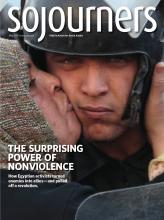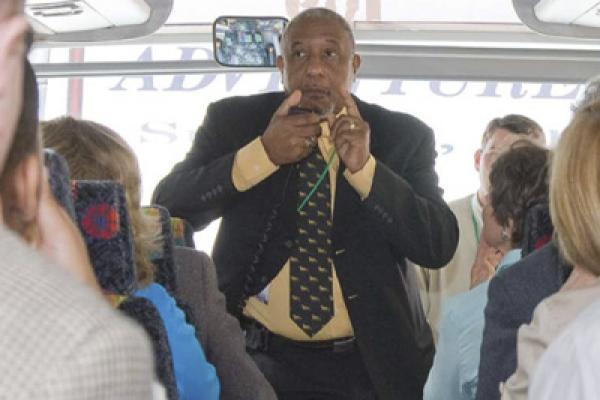In 1958, Bernard Lafayette was 19 years old and a student at American Baptist College in Nashville, Tennessee, when his life changed. Dragged to a nonviolence training session by his friend John Lewis (who later became a member of Congress), Lafayette learned the methods and techniques of nonviolent protest. These sessions catapulted Lafayette into the civil rights movement. Lafayette was arrested in the lunch counter sit-ins in Nashville, and in 1960 was one of the founding members of the Student Nonviolent Coordinating Committee. After Martin Luther King Jr.'s death, Lafayette continued his long career as a practitioner and trainer of nonviolence, opening nonviolence training centers around the world. In this interview with Sojourners web editor Jeannie Choi, Lafayette documents his progress from a young student of nonviolence during the civil rights movement to an international nonviolence trainer, equipping agents of peace and protest throughout the world.
Jeannie Choi: How did you get involved in the civil rights movement?
Bernard Lafayette: Jim Lawson, who was a chaplain and a divinity student at Vanderbilt University, started workshops on nonviolence at First Baptist Nashville. John Lewis and I were good friends, and he was the one who persuaded me to come to those workshops. I was a little reluctant because I didn't have time; I was a student and had a couple jobs on campus and a job downtown during the lunch hour washing dishes. But through the training, I learned to see the world through another person's eyes. That was an important step in my personal development.
What methods were used to train you in nonviolence?
Read the Full Article

